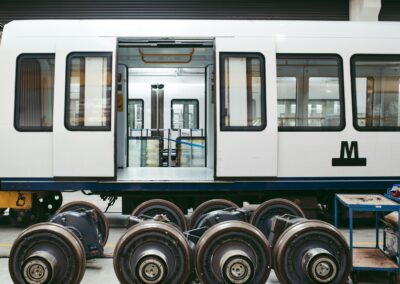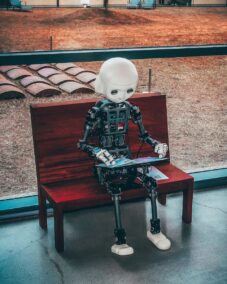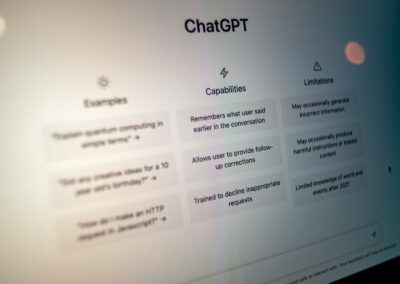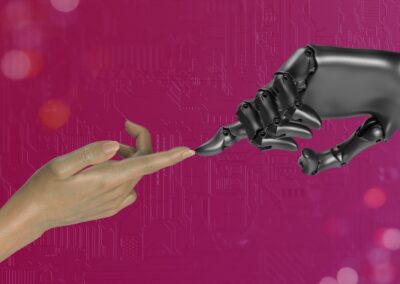Transforming Homes with AI-Powered Automation
Enhanced Convenience Through Smart Technology
AI-powered home automation systems are redefining modern living, providing unprecedented levels of convenience and efficiency. These systems utilize artificial intelligence to seamlessly integrate various household functions, creating a smart environment that responds to the needs of residents. In rapidly developing regions such as Saudi Arabia, the UAE, Riyadh, and Dubai, the adoption of AI-powered home automation systems is transforming how people live and manage their homes.
One of the most significant features of AI-powered home automation systems is their ability to learn and adapt to the routines and preferences of the household. By analyzing usage patterns and behaviors, these systems can automate tasks such as lighting, climate control, and security. For instance, smart thermostats can learn the preferred temperature settings for different times of the day and adjust accordingly, ensuring optimal comfort and energy efficiency without manual intervention.
Voice control is another convenience-enhancing feature of AI home automation systems. Integration with virtual assistants like Amazon Alexa, Google Assistant, and Apple’s Siri allows users to control various devices and functions using simple voice commands. This hands-free operation is particularly beneficial in busy households, making it easier to manage daily tasks and enhancing the overall user experience. Whether it’s adjusting the lighting, setting reminders, or playing music, voice-activated AI systems streamline household management.
Boosting Efficiency with Smart Home Integration
The efficiency gains offered by AI-powered home automation systems are significant. These systems not only save time by automating repetitive tasks but also optimize resource use, reducing waste and lowering utility bills. For example, smart irrigation systems can adjust watering schedules based on weather forecasts and soil moisture levels, ensuring that gardens are adequately watered without overuse. This intelligent resource management leads to more sustainable living practices.
Energy management is a key area where AI home automation systems excel. Smart lighting systems can adjust brightness levels based on occupancy and natural light availability, significantly reducing electricity consumption. Similarly, AI-powered appliances can operate during off-peak hours when energy rates are lower, further cutting down on energy costs. In regions like the UAE and Saudi Arabia, where energy efficiency is a growing concern, these smart systems provide practical solutions for reducing household energy consumption.
Moreover, AI-powered security systems enhance the safety and efficiency of home monitoring. These systems use advanced algorithms to detect unusual activity and send real-time alerts to homeowners. Features such as facial recognition, motion detection, and remote surveillance provide comprehensive security coverage, ensuring peace of mind. In smart cities like Riyadh and Dubai, where security is paramount, AI home automation systems offer robust protection for residential properties.
The Future of AI-Powered Home Automation
Integrating AI with the Internet of Things (IoT)
The future of AI-powered home automation lies in the integration with the Internet of Things (IoT). IoT devices, connected through a central AI system, can communicate and collaborate to create a fully integrated smart home environment. This connectivity allows for seamless interactions between different devices, enhancing the functionality and responsiveness of the home automation system.
For example, smart refrigerators can monitor food inventory and suggest recipes based on available ingredients, while also coordinating with grocery delivery services for restocking. Similarly, AI-integrated washing machines can adjust washing cycles based on the type and amount of laundry, ensuring optimal cleaning and energy efficiency. By leveraging IoT, AI-powered home automation systems can offer a more personalized and efficient user experience, catering to the specific needs of each household.
In addition to improving individual device functionality, IoT integration enhances overall home management. Centralized control systems, accessible via smartphones or tablets, allow homeowners to monitor and manage all connected devices from a single interface. This centralized control simplifies household management and ensures that all systems work together harmoniously, maximizing the benefits of AI-powered home automation.
Advancing AI Capabilities for Smarter Homes
As AI technology continues to advance, the capabilities of home automation systems will expand, offering even greater convenience and efficiency. Machine learning algorithms will become more sophisticated, enabling systems to predict and anticipate user needs with higher accuracy. This predictive capability will allow AI home automation systems to proactively manage household tasks, further reducing the need for manual intervention.
Natural language processing (NLP) advancements will enhance voice control functionality, allowing for more complex and nuanced interactions with smart home systems. Users will be able to communicate with their home automation systems in more natural and intuitive ways, making the technology more accessible and user-friendly. This improvement in NLP will also enable AI systems to better understand and respond to user preferences and habits, creating a more personalized home environment.
Moreover, AI advancements will facilitate the integration of smart home systems with external services and platforms. For example, AI-powered home automation systems could coordinate with local energy grids to optimize energy usage based on real-time demand and supply conditions. Similarly, integration with healthcare services could enable smart homes to monitor the health and well-being of residents, providing timely alerts and assistance in case of emergencies. These advancements will transform AI-powered home automation systems into comprehensive platforms that enhance all aspects of daily life.
Conclusion
In conclusion, AI-powered home automation systems are revolutionizing the way we live, offering unparalleled convenience and efficiency. By harnessing the power of artificial intelligence, these systems learn and adapt to user preferences, automate routine tasks, and optimize resource use. In regions like Saudi Arabia, the UAE, Riyadh, and Dubai, where innovation and technology are at the forefront of urban development, the adoption of AI-powered home automation systems is transforming residential living. As AI technology continues to evolve, the potential for smarter, more efficient homes will only grow, making AI-powered home automation an essential component of modern living.
—
#AIhomeautomation #smarthometechnology #convenience #efficiency #moderntechnology #SaudiArabia #UAE #Riyadh #Dubai























